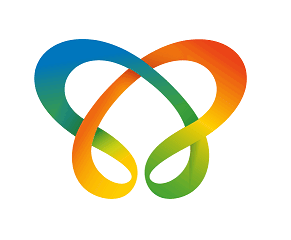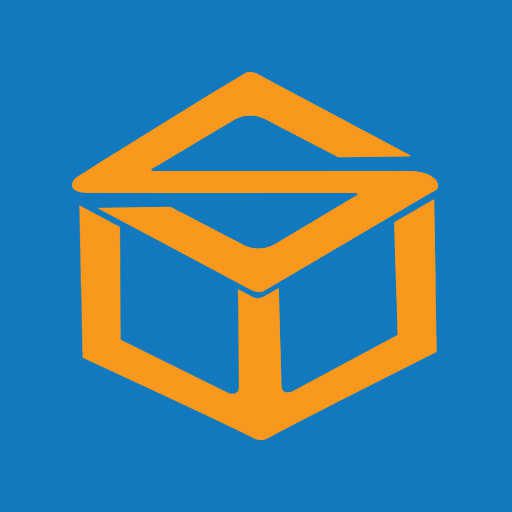Description

Zen Cart

Inoday eCommerce Solution
Comprehensive Overview: Zen Cart vs Inoday eCommerce Solution
Zen Cart and Inoday eCommerce Solution are both tools used in the eCommerce landscape, but they serve different purposes and markets. Here's a comprehensive overview of these two:
Zen Cart
a) Primary Functions and Target Markets:
-
Primary Functions: Zen Cart is an open-source shopping cart software that provides users with the tools to create an online store. It focuses on offering a customizable and user-friendly experience for both merchants and customers. Key functionalities include product management, customer management, order management, and support for multiple currencies and languages. Zen Cart also offers a range of add-ons and plugins to extend its capabilities.
-
Target Markets: Zen Cart primarily targets small to medium-sized businesses looking for a cost-effective solution to set up an online store. Its open-source nature makes it particularly appealing to businesses with limited budgets who can take advantage of the customization options to tailor the platform to their needs.
b) Market Share and User Base:
- Zen Cart has a modest but dedicated user base, generally overshadowed by larger platforms like WooCommerce, Shopify, and Magento. It is popular among businesses that prefer open-source solutions due to the flexibility and cost-effectiveness it offers.
c) Key Differentiating Factors:
- Open Source: Zen Cart is completely open-source, which means users can modify and customize the codebase to suit their specific needs without any licensing costs.
- Community Support: A well-established community provides support, contributes to developments, and shares plugins and add-ons.
- Affordability: Zen Cart is free to download and use, with businesses only bearing costs related to hosting, domain registration, and any additional commercial plugins or design work required.
Inoday eCommerce Solution
a) Primary Functions and Target Markets:
-
Primary Functions: Inoday is an IT consulting firm that offers tailored eCommerce solutions. While not a standalone platform like Zen Cart, Inoday provides services that include eCommerce website development, integration, customization, and consultancy based on various platforms, often integrating with larger ERP systems like NetSuite.
-
Target Markets: Inoday targets a broader range of businesses, including medium to large enterprises. They offer tailored solutions suitable for companies requiring customized features and integrations for complex business processes, often in B2B markets.
b) Market Share and User Base:
- Inoday's market share is not directly comparable to Zen Cart as it operates more as a consultancy providing implementations and custom solutions across various platforms. Thus, their market presence is more diffuse, working across different technologies based on client needs.
c) Key Differentiating Factors:
- Consultancy-Based: Unlike Zen Cart, Inoday is not a platform but a service provider, which means they work on customizing and integrating solutions rather than offering an off-the-shelf product.
- Customization and Integration: Inoday specializes in integrating various business systems (like ERP) with eCommerce solutions, offering greater flexibility for complex business requirements.
- Enterprise Focus: They often cater to larger businesses with specific needs that go beyond what standard eCommerce platforms offer.
Conclusion
Zen Cart and Inoday eCommerce Solution serve different niches within the eCommerce space. Zen Cart is an open-source platform suitable for smaller businesses looking for a DIY approach, while Inoday provides consulting and integration services for larger businesses needing tailor-made solutions. Zen Cart competes in the platform space with other open-source solutions, whereas Inoday operates more as an integrator and consultant within the broader eCommerce ecosystem.
Contact Info

Year founded :
1995
Not Available
Not Available
Not Available
Not Available

Year founded :
Not Available
Not Available
Not Available
Not Available
Not Available
Feature Similarity Breakdown: Zen Cart, Inoday eCommerce Solution
When comparing Zen Cart and Inoday eCommerce Solution, it’s helpful to break down their similarities and differences in terms of core features, user interfaces, and any unique attributes. Here’s a general breakdown:
a) Common Core Features:
Both Zen Cart and Inoday eCommerce Solution offer several core features typical of eCommerce platforms. These include:
-
Product Management:
- Ability to add, edit, and categorize products.
- Support for multiple product images and detailed descriptions.
-
Order and Inventory Management:
- Tools for managing orders and tracking inventory levels.
- Notifications for low stock and management of restocking.
-
Customer Management:
- Customer accounts and profiles.
- Order history and tracking for customers.
-
Payment Processing:
- Integration with multiple payment gateways.
- Support for various payment methods like credit cards and PayPal.
-
Shipping and Tax Configuration:
- Customizable shipping options and rates.
- Tax settings based on geographical locations.
-
Reporting and Analytics:
- Sales reports and customer insights.
- Performance metrics to analyze the business.
-
Customization and Extensibility:
- Options to customize store appearance and functionality.
- Support for plugins and add-ons to extend features.
b) User Interface Comparison:
-
Zen Cart:
- The user interface of Zen Cart is functional but may appear outdated compared to more modern eCommerce solutions. It emphasizes utility over aesthetics and may require some technical knowledge to leverage fully.
- The admin panel is comprehensive but could be overwhelming for beginners. It provides extensive options and configurations which can be a pro for advanced users but a con for those seeking simplicity.
-
Inoday eCommerce Solution:
- Inoday might provide a more streamlined and modern user interface, especially if it leverages existing ERP integrations or more recent frameworks.
- Known for intuitive design, it might offer a smoother, more user-friendly experience that could benefit businesses looking for a straightforward setup and management process.
c) Unique Features:
-
Zen Cart:
- Zen Cart’s primary unique feature is its open-source nature, which allows for extensive customization. Users can modify both the front end and back end to fit specific business needs, provided they have the technical know-how.
- Strong community support and extensive free documentation help developers tailor the platform.
-
Inoday eCommerce Solution:
- Inoday may integrate more seamlessly with ERP systems, especially if originating from its parent company’s portfolio of software solutions. This integration can be valuable for businesses looking for unified oversight of operations.
- It might offer proprietary modules or features related to supply chain and logistics management, setting it apart for users who require these specific capabilities.
Summary:
While Zen Cart and Inoday eCommerce Solution share many common eCommerce features, they differ significantly in user interface and unique features. Zen Cart stands out for its open-source flexibility, allowing for deep customization, while Inoday may offer a more modern interface and distinct ERP integrations that benefit businesses requiring comprehensive operation management solutions.
Features

Not Available

Not Available
Best Fit Use Cases: Zen Cart, Inoday eCommerce Solution
When assessing eCommerce platforms like Zen Cart and Inoday eCommerce Solution, it's important to understand their unique strengths and how they align with various business needs. Let's delve into the optimal use cases for each:
a) Zen Cart
Best Fit Use Cases:
-
Small to Medium-Sized Businesses (SMBs): Zen Cart is particularly well-suited for smaller businesses that are looking for a cost-effective and flexible open-source solution. These businesses often benefit from Zen Cart's low entry cost and lack of licensing fees.
-
Tech-Savvy Entrepreneurs: Given its open-source nature, Zen Cart allows for extensive customization. This makes it ideal for businesses with in-house technical capabilities or access to a reliable developer who can modify and build on the platform.
-
Niche Online Retailers: Businesses that operate in niche markets and require unique, tailored features will find Zen Cart appealing due to its customizable nature. It supports a wide range of plugins for specialized functionalities.
-
Companies with Simple Catalog Needs: For businesses that do not have excessively large or complex product catalogs, Zen Cart provides a straightforward, no-frills solution that simplifies inventory management.
b) Inoday eCommerce Solution
Preferred Use Cases:
-
Integrated Business Solutions: Inoday eCommerce Solution is particularly advantageous for businesses looking for seamless integration with other systems, especially those using NetSuite. It’s perfect for organizations requiring unified systems across finance, CRM, and inventory.
-
Scalability Needs: Companies that anticipate rapid growth or have fluctuating demands can benefit from Inoday's scalable solutions, which are designed to accommodate expansion while maintaining operational efficiency.
-
Businesses Seeking a Comprehensive Suite: For those requiring a comprehensive suite that extends beyond basic eCommerce functionalities into ERP, CRM, and more, Inoday provides a more holistic business management approach.
-
Industry-Specific Needs: Inoday offers tailored solutions for specific industries, making it preferable for businesses needing specialized features that align closely with their industry requirements.
d) Catering to Different Industry Verticals or Company Sizes:
Zen Cart:
- Retail Startups and Boutiques: Zen Cart is an excellent fit for small to medium online retailers, especially those in fashion, handmade goods, or other niche industries, focusing on direct customer engagement rather than large-scale operations.
- Non-Profit and Educational Entities: Organizations with limited budgets, such as non-profits, can leverage Zen Cart's cost-effectiveness and adaptability to meet their unique operational needs.
- SMBs with Customization Focus: Companies prioritizing specific functionality over built-in features can benefit from the platform's flexibility.
Inoday eCommerce Solution:
- Mid to Large Enterprises: Larger businesses with complex requirements across different business operations will find Inoday's integration capabilities with NetSuite beneficial for streamlining processes.
- Manufacturing and Distribution: Businesses in manufacturing and distribution that need integrated supply chain management alongside eCommerce capabilities can utilize Inoday’s suite for comprehensive management.
- Service-Based Entities: Organizations offering services alongside products can leverage Inoday for its broad suite capabilities, providing tools to manage booking, billing, and customer service efficiently.
In summary, Zen Cart is a strong choice for smaller businesses and those seeking custom solutions at a lower cost, while Inoday caters to businesses in need of comprehensive, integrated solutions that facilitate growth and efficiency in larger, more complex environments.
Pricing

Pricing Not Available

Pricing Not Available
Metrics History
Metrics History
Comparing undefined across companies
Conclusion & Final Verdict: Zen Cart vs Inoday eCommerce Solution
To determine which eCommerce solution offers the best overall value, it is crucial to weigh the strengths and weaknesses of Zen Cart and Inoday eCommerce Solution.
Conclusion:
a) Overall Value:
- Zen Cart: Zen Cart is an open-source eCommerce platform known for its flexibility and cost-effectiveness. It is particularly appealing to small to medium-sized businesses or those with some technical expertise due to its extensive customization options and the affordability of open-source software. However, it can require more technical upkeep and has a steeper learning curve, which might not be ideal for all users.
- Inoday eCommerce Solution: Inoday, typically built around NetSuite or other integrated systems, offers comprehensive solutions that include advanced features and integrations. This platform is ideal for businesses looking for scalability, robust support, and seamless integration with existing systems like ERP or CRM, which may come at a higher price point.
b) Pros and Cons:
- Zen Cart:
Pros:
- Open-source and free to use, meaning no licensing fees.
- Highly customizable with a wide range of plugins.
- Strong community support offering plenty of resources and forums. Cons:
- Requires technical knowledge for setup and maintenance.
- May not be the best choice for businesses needing advanced features like high-level security or integrated accounting.
- Limited scalability for rapidly growing businesses compared to enterprise solutions.
- Inoday eCommerce Solution:
Pros:
- Comprehensive, integrated business solutions that can include ERP and CRM.
- Professional support and service packages.
- Scalable, making it suitable for companies expecting significant growth. Cons:
- Typically more expensive than open-source options like Zen Cart.
- Could be too complex or feature-rich for small businesses not needing full enterprise capabilities.
- Dependence on a vendor for updates and problem-solving.
c) Recommendations:
-
Users should choose Zen Cart if they are cost-conscious, have resources for technical customization, and need a basic, flexible eCommerce platform primarily for small to medium business operations.
-
Users should choose Inoday eCommerce Solution if they are seeking a highly integrated business environment that can grow with their operations and need strong technical support and additional business management features.
In summary, the decision between Zen Cart and Inoday eCommerce Solution largely depends on the specific needs, resources, and growth expectations of the business. For budget-conscious businesses with technical skills, Zen Cart offers substantial value. In contrast, for companies seeking robust, scalable solutions with professional support, Inoday eCommerce Solution represents a comprehensive investment in their business infrastructure.
Add to compare
Add similar companies



